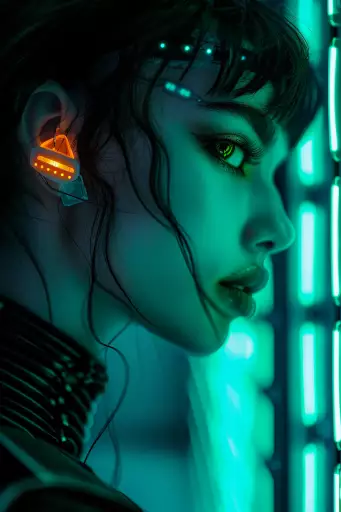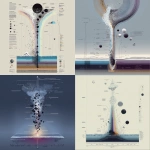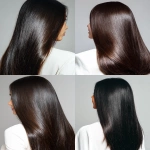Explore the Best AI Image Gallery

The Algorithmic Brush: AI Images in Marketing
The marketing landscape is rapidly evolving, and at its forefront is a new wave of technology: Artificial Intelligence (AI). One particularly fascinating application of AI is the generation of images, opening up exciting possibilities for marketers to captivate audiences and craft compelling narratives. This blog post will delve into the impact of AI-generated images in marketing, exploring their potential uses, ethical considerations, and future trends.
A New Palette of Possibilities
AI image generators utilize complex algorithms trained on massive datasets of existing images to create unique and original visuals. These tools empower marketers with unprecedented creative control, enabling them to:
- Generate custom imagery for marketing campaigns: Instead of relying on stock photos or hiring expensive illustrators, marketers can now generate bespoke visuals tailored to their specific brand identity and messaging.
- Personalize marketing content at scale: AI can create variations of images based on user demographics, preferences, or past interactions, delivering highly targeted and engaging experiences.
- Prototype designs rapidly: Marketers can leverage AI to quickly generate multiple iterations of visuals, allowing for faster iteration and refinement of design concepts.
The Ethical Dimension
While the potential benefits of AI-generated images are undeniable, its crucial to address the ethical considerations that accompany this technology. Some key concerns include:
- Copyright and ownership: Questions arise regarding the ownership rights of AI-generated content. Who holds the copyright – the developer of the AI tool, the user who inputs the prompt, or the AI itself?
- Bias and representation: AI models are trained on existing data, which may contain biases that reflect societal stereotypes. This can result in the generation of images that perpetuate harmful representations.
- Transparency and accountability: The decision-making process of AI algorithms can be opaque, making it difficult to understand how an image is generated. This lack of transparency raises concerns about accountability when AI-generated content is used in sensitive contexts.
Navigating the Future
The integration of AI image generation into marketing is still in its early stages. However, its potential impact is immense. As this technology continues to evolve, its essential for marketers, policymakers, and the wider community to engage in thoughtful discussions and establish ethical guidelines to ensure responsible and beneficial use.
Here are some future trends we can expect to see:
- Increased accessibility: AI image generation tools will become more user-friendly and accessible to a wider range of marketers, regardless of their technical expertise.
- Integration with other marketing platforms: AI-generated images will seamlessly integrate with existing marketing platforms and workflows, streamlining creative processes.
- Hyper-personalization: AI will enable the creation of highly personalized visual content tailored to individual user preferences and behaviors.
The algorithmic brush is poised to revolutionize the way we create and consume marketing content. By embracing the possibilities while navigating the ethical challenges, marketers can harness the power of AI to tell compelling stories, engage audiences, and drive business success.

](https://images.ai-img.art/thumbnails/150/b814eba984b490e7f87095501b4c13b17e89f8960f044f09fbf2053969d9be29.webp)







](https://images.ai-img.art/thumbnails/150/6650b0d98c6fec81df8bdfb569e0033970b46a653d188dde42417e624901493f.webp)






](https://images.ai-img.art/thumbnails/150/58fa7e3c741db40e9e61e20410c8d5675b11efb625df109812cc768f9b17b717.webp)
](https://images.ai-img.art/thumbnails/150/10ab1dbb1358d3dbba41472a395400bd9daf5cba3f5c8841970b4110820d5a15.webp)



](https://images.ai-img.art/thumbnails/150/f7e46d83151e744219d4886ca1329794d3e9d5071649abea0b2996cb34c3c77c.webp)
](https://images.ai-img.art/thumbnails/150/396b1c442fa4d576e35f871ba0f3c7e52bb62c6bcee69082dbcb816a5fd3aa8c.webp)

](https://images.ai-img.art/thumbnails/150/230fb1adf4241373591167585daecc4556f4c58c4d0dc33638c62b1c60c1b72a.webp)







](https://images.ai-img.art/thumbnails/150/2f4f685af05f9526e1ac2f05f53dbb1d97bf8a65f6a41c6e67059c5ed2aa871f.webp)

](https://images.ai-img.art/thumbnails/150/266c825c7f03beff90a8a60e36207b8240cdf722eb1cf5db26e8adb51b992287.webp)


](https://images.ai-img.art/thumbnails/150/bda14621f89269b376d6681934fea3c4af8c5f8593b80e1cb25cdf0047f98621.webp)











